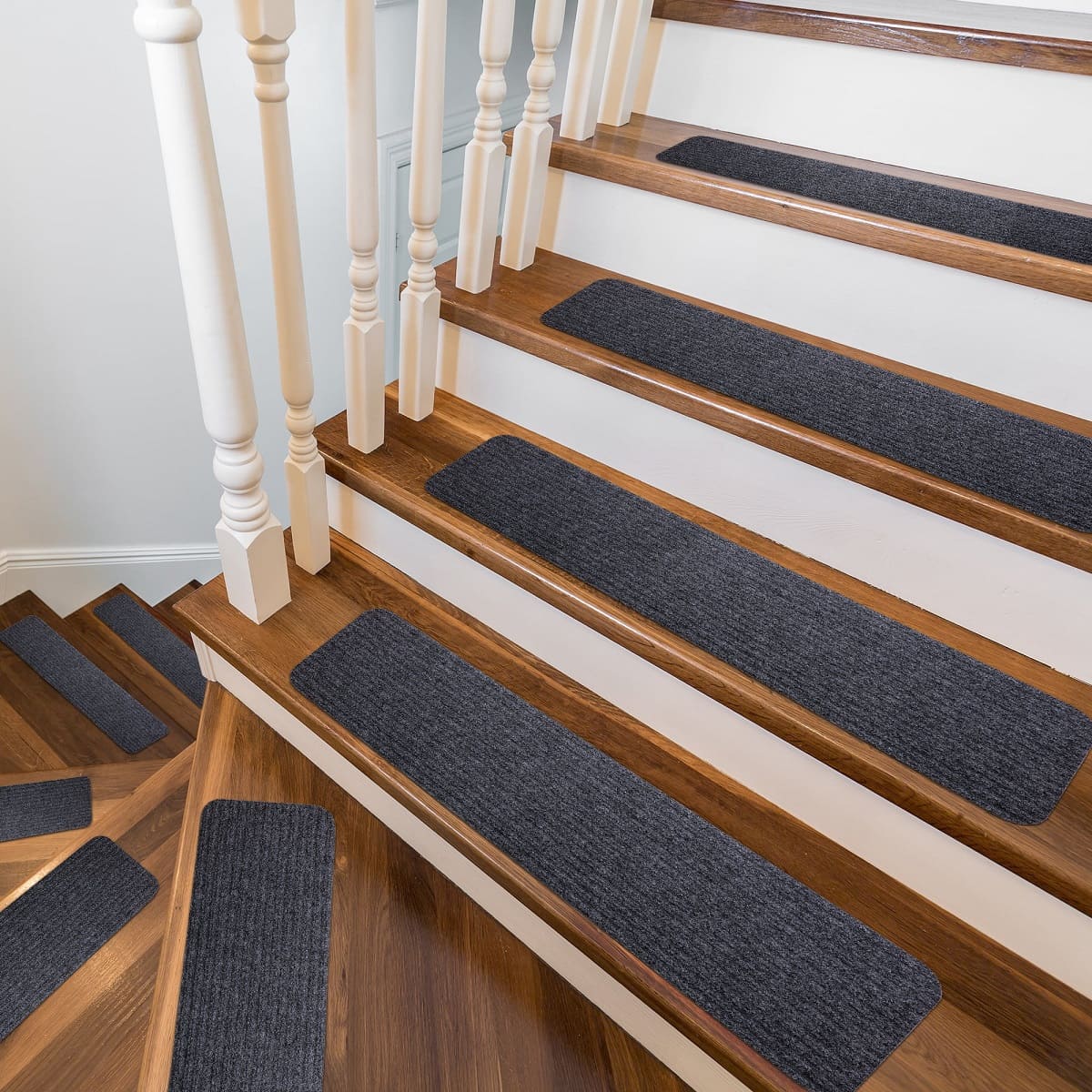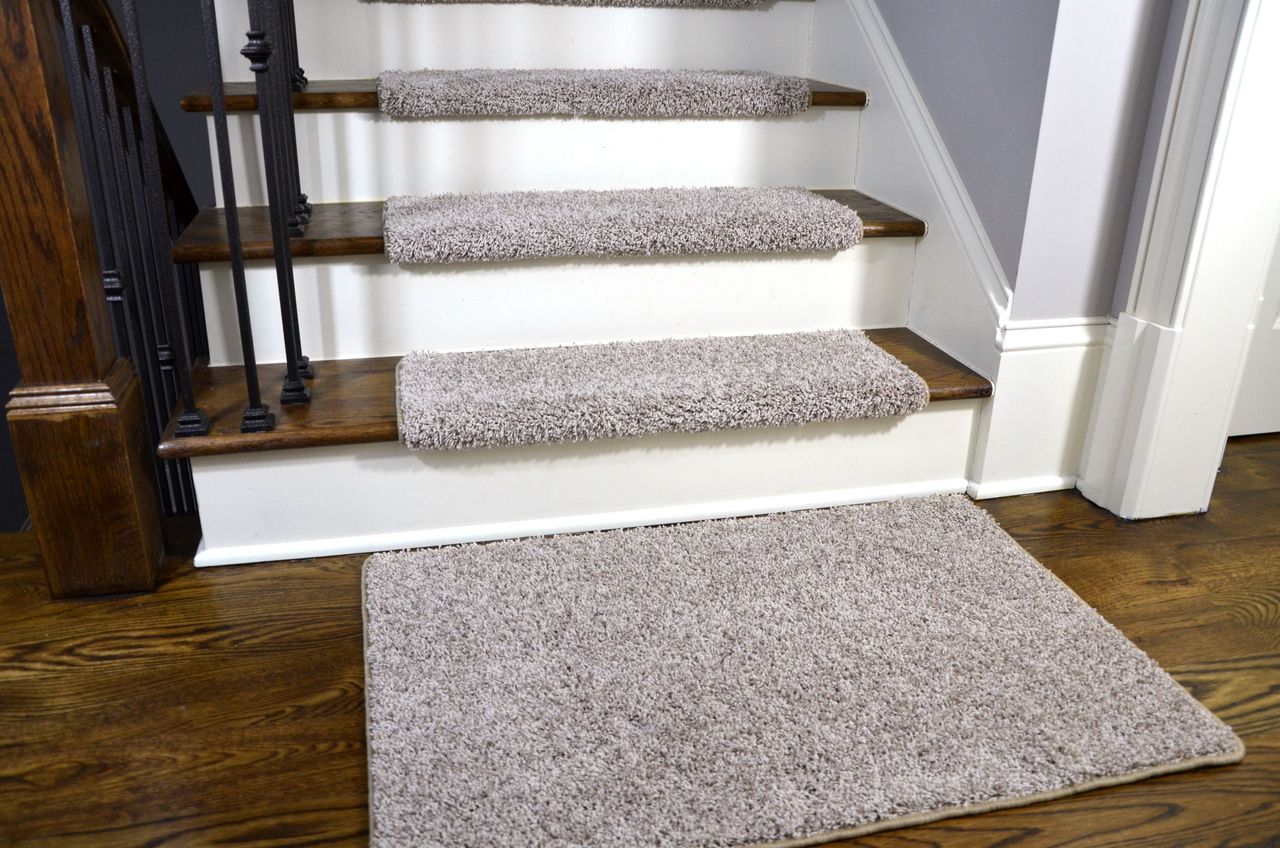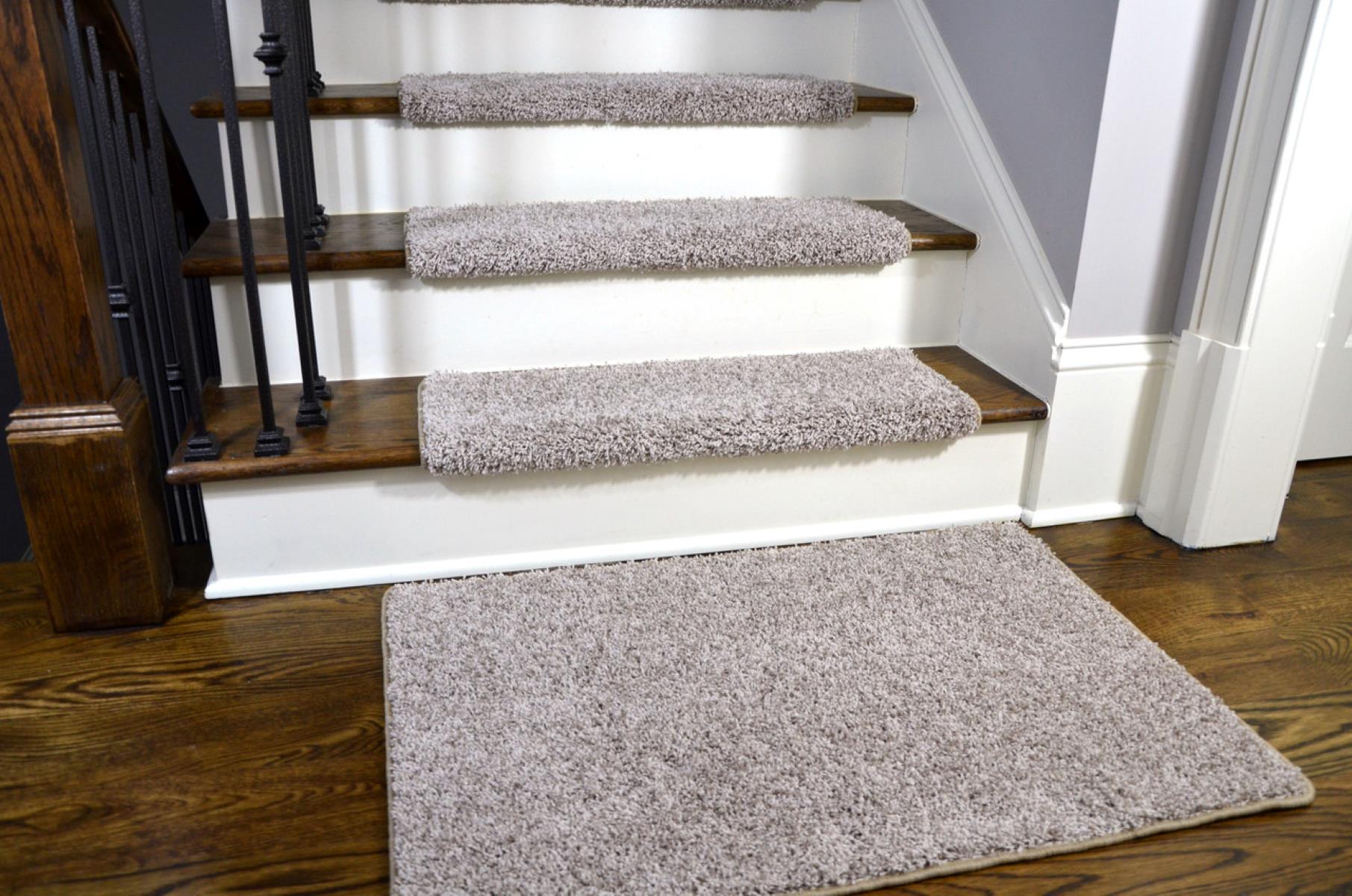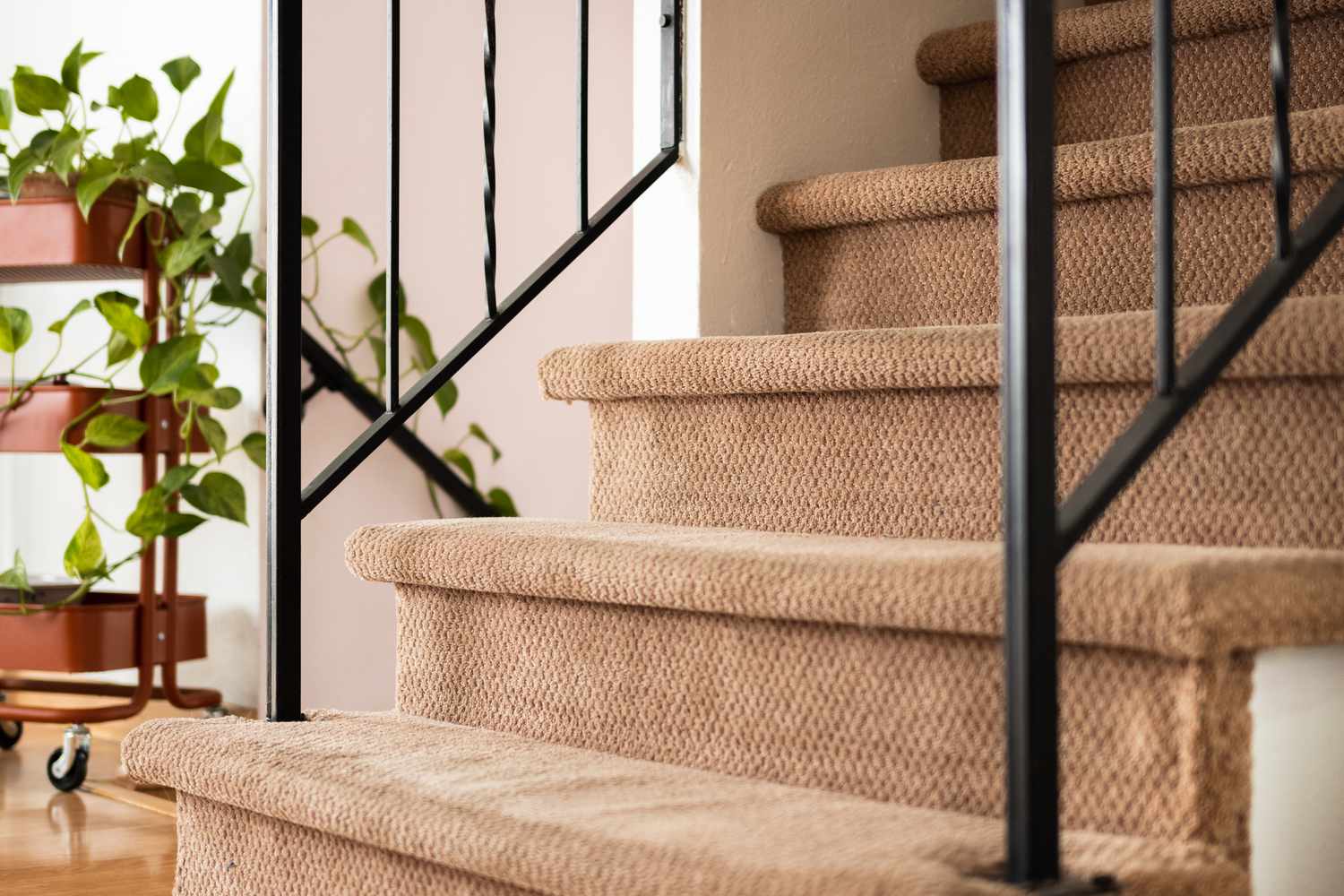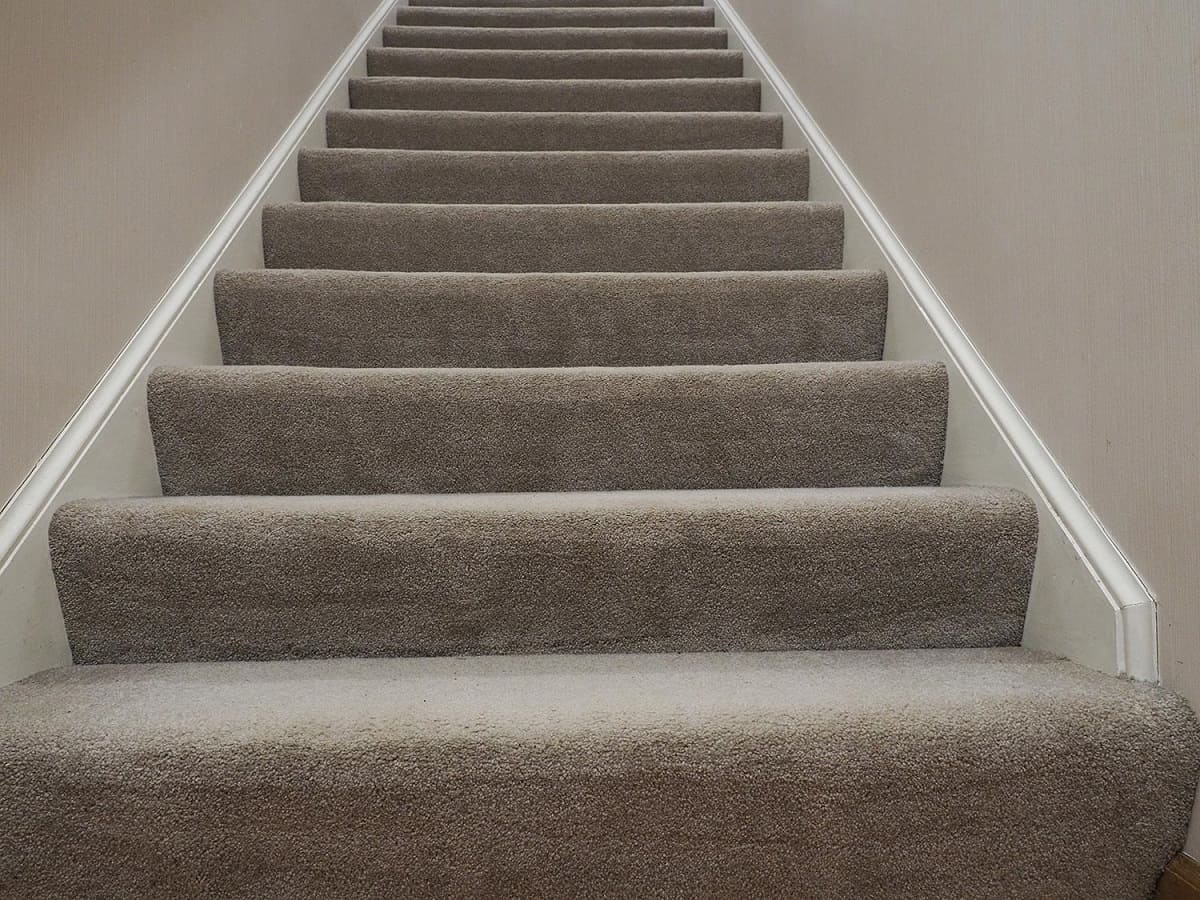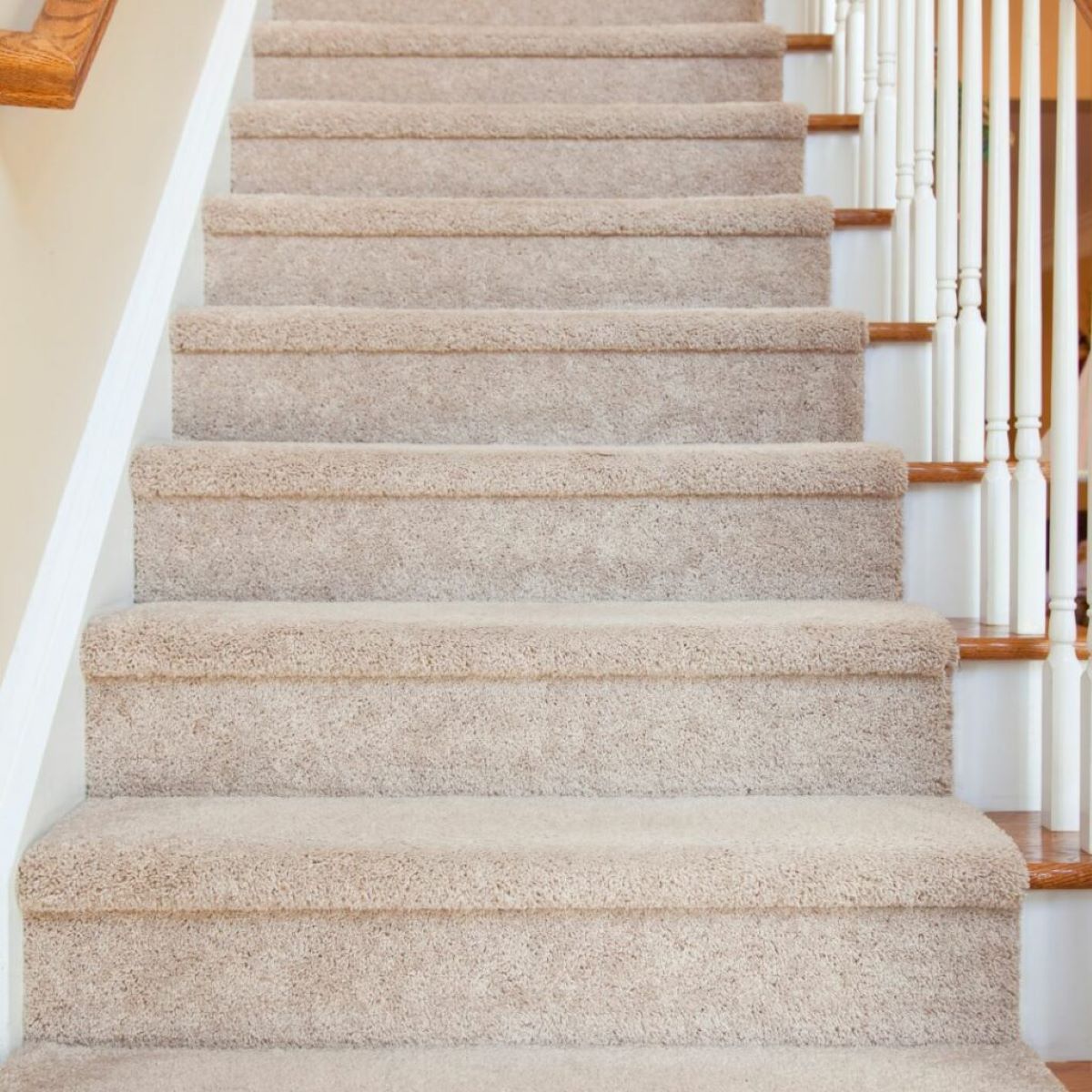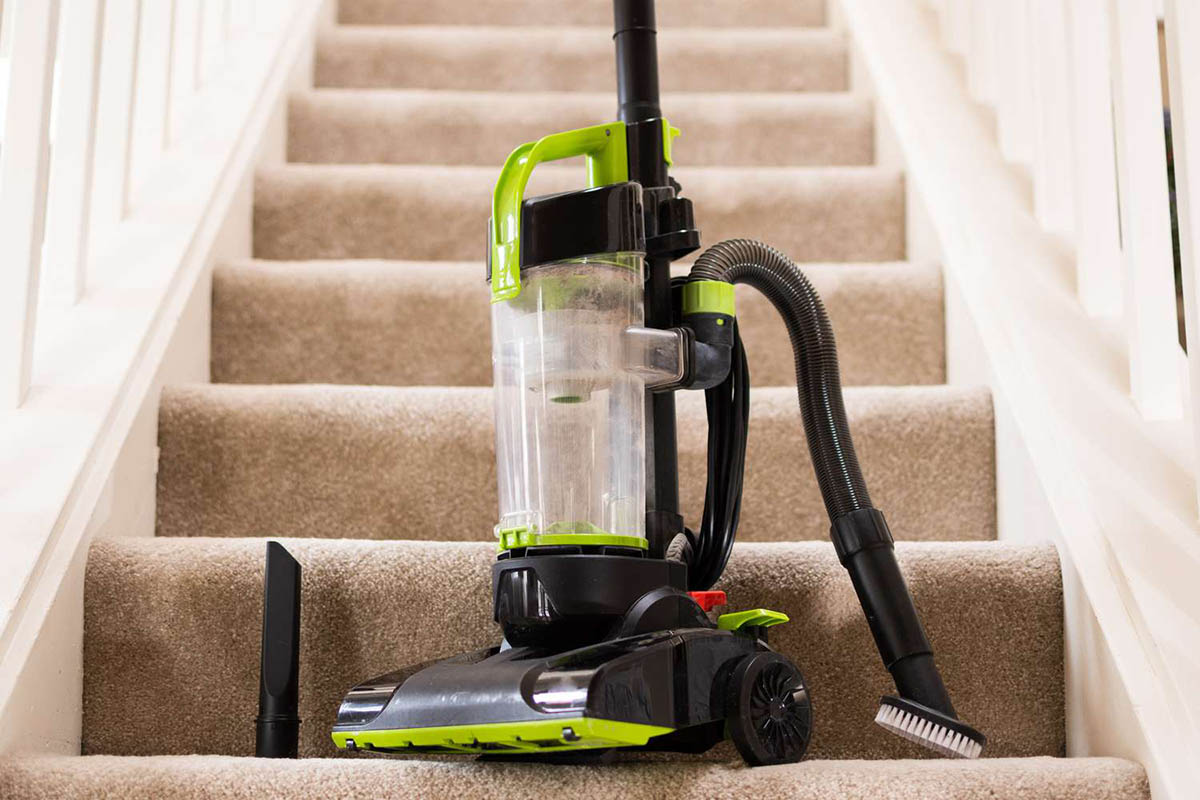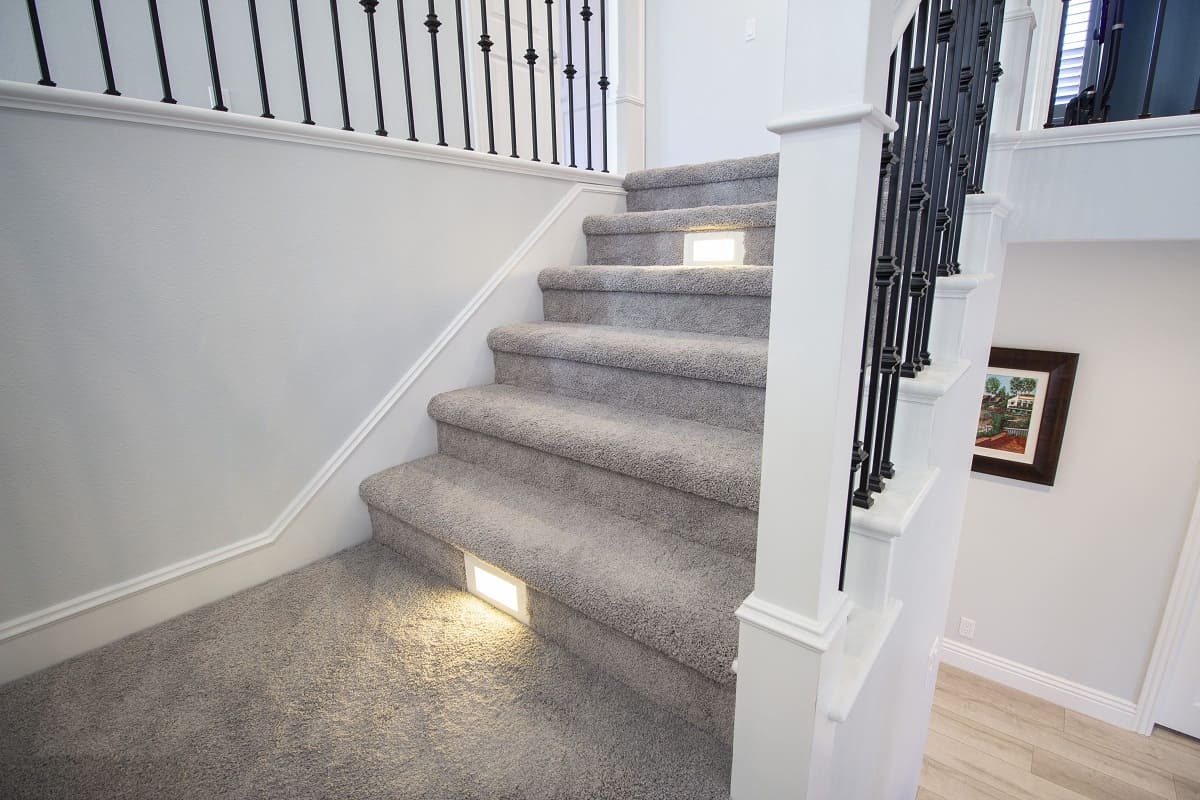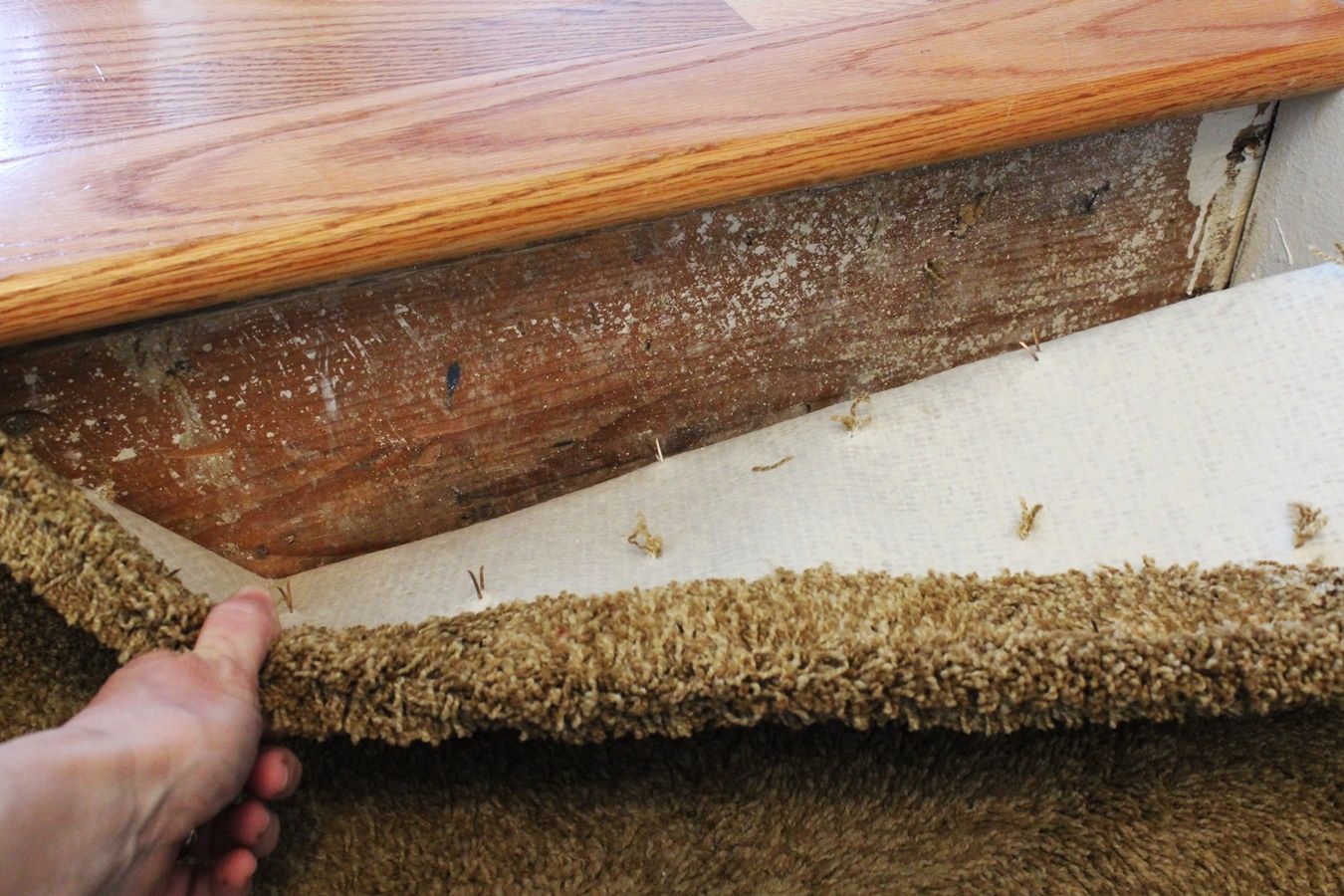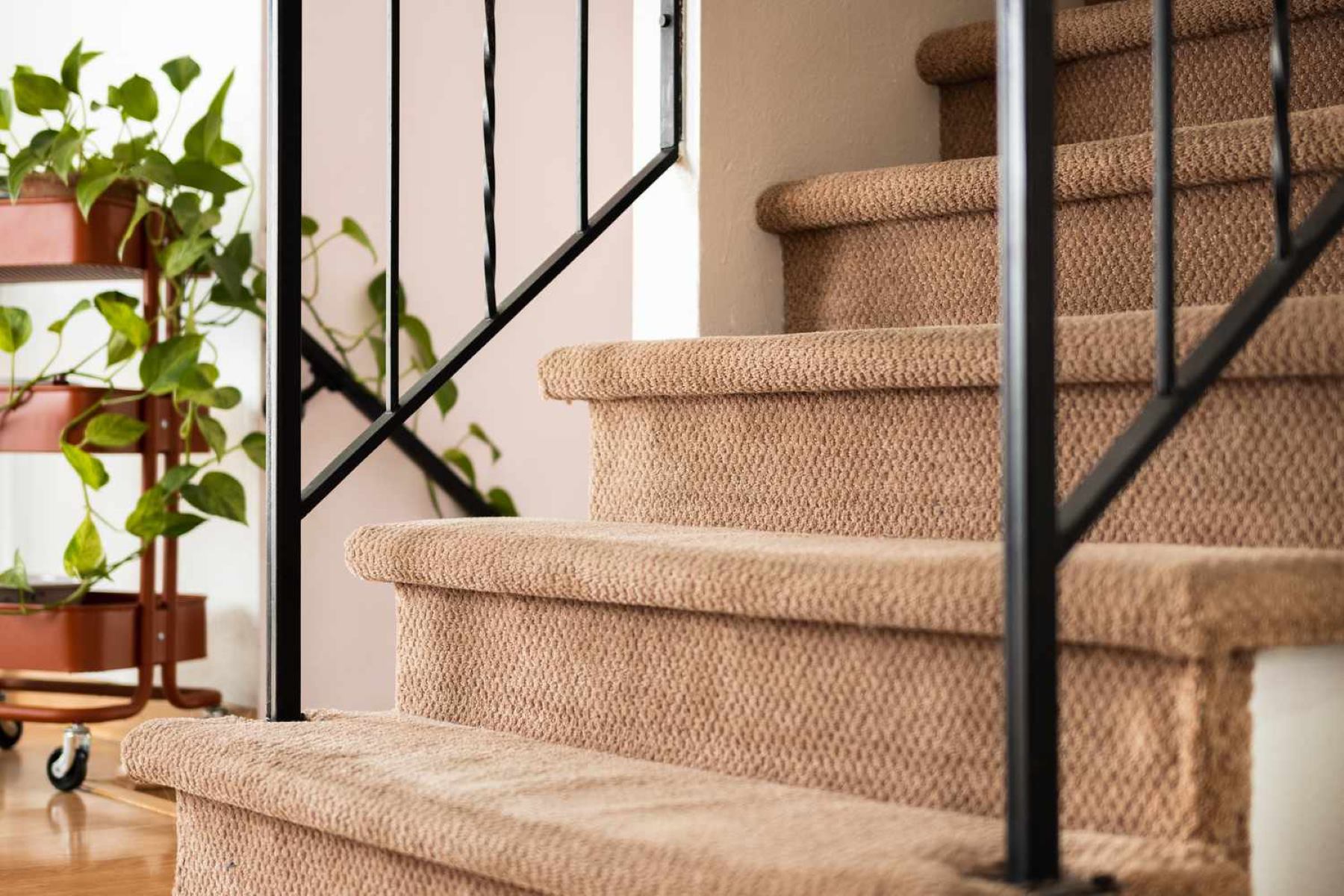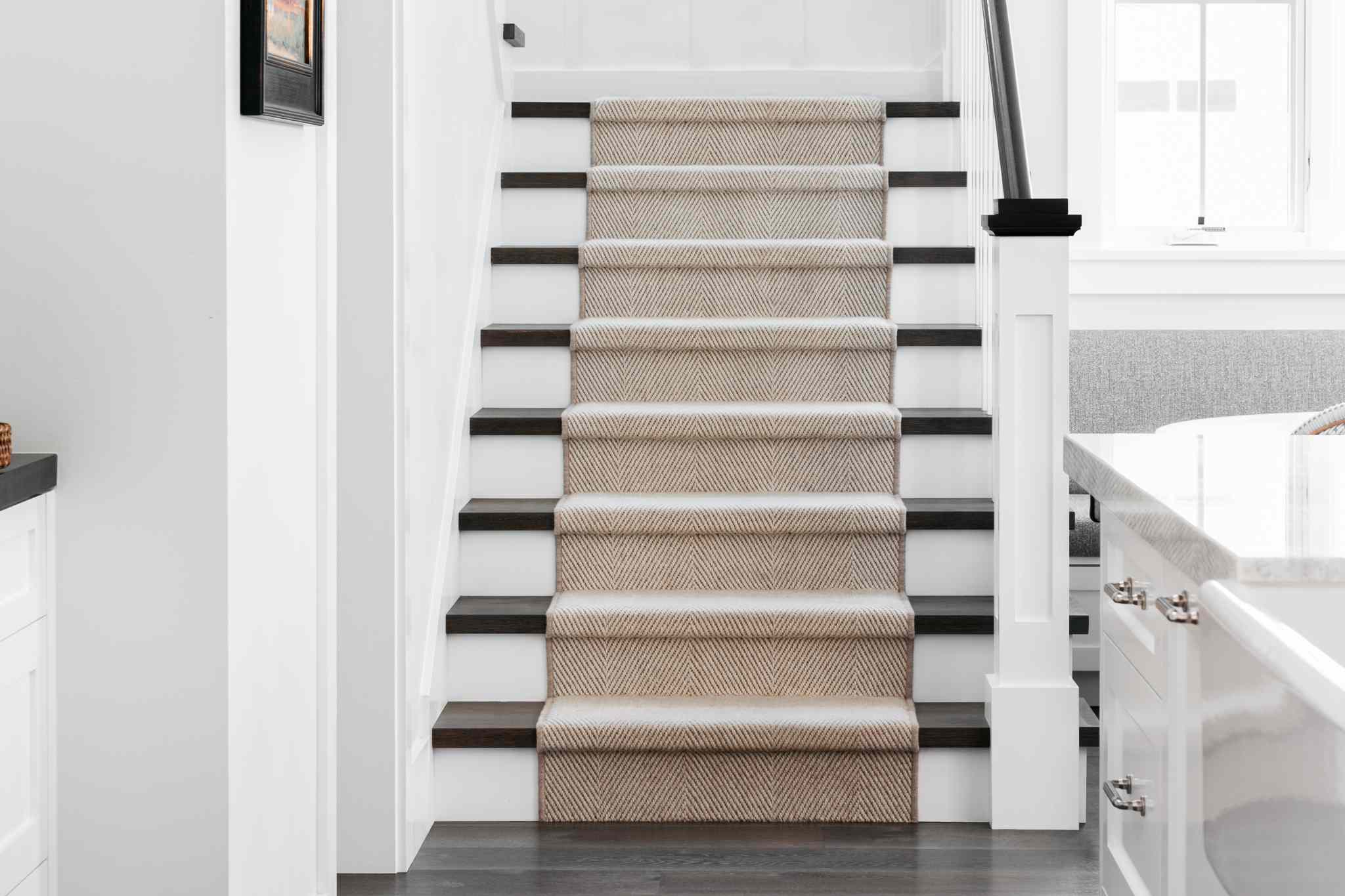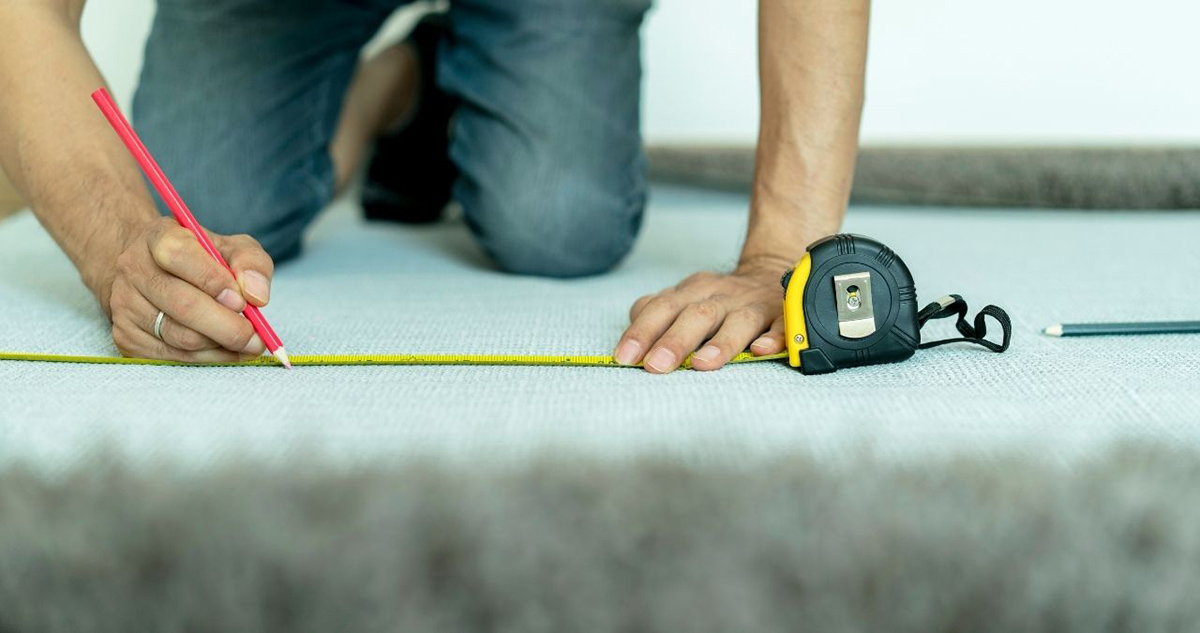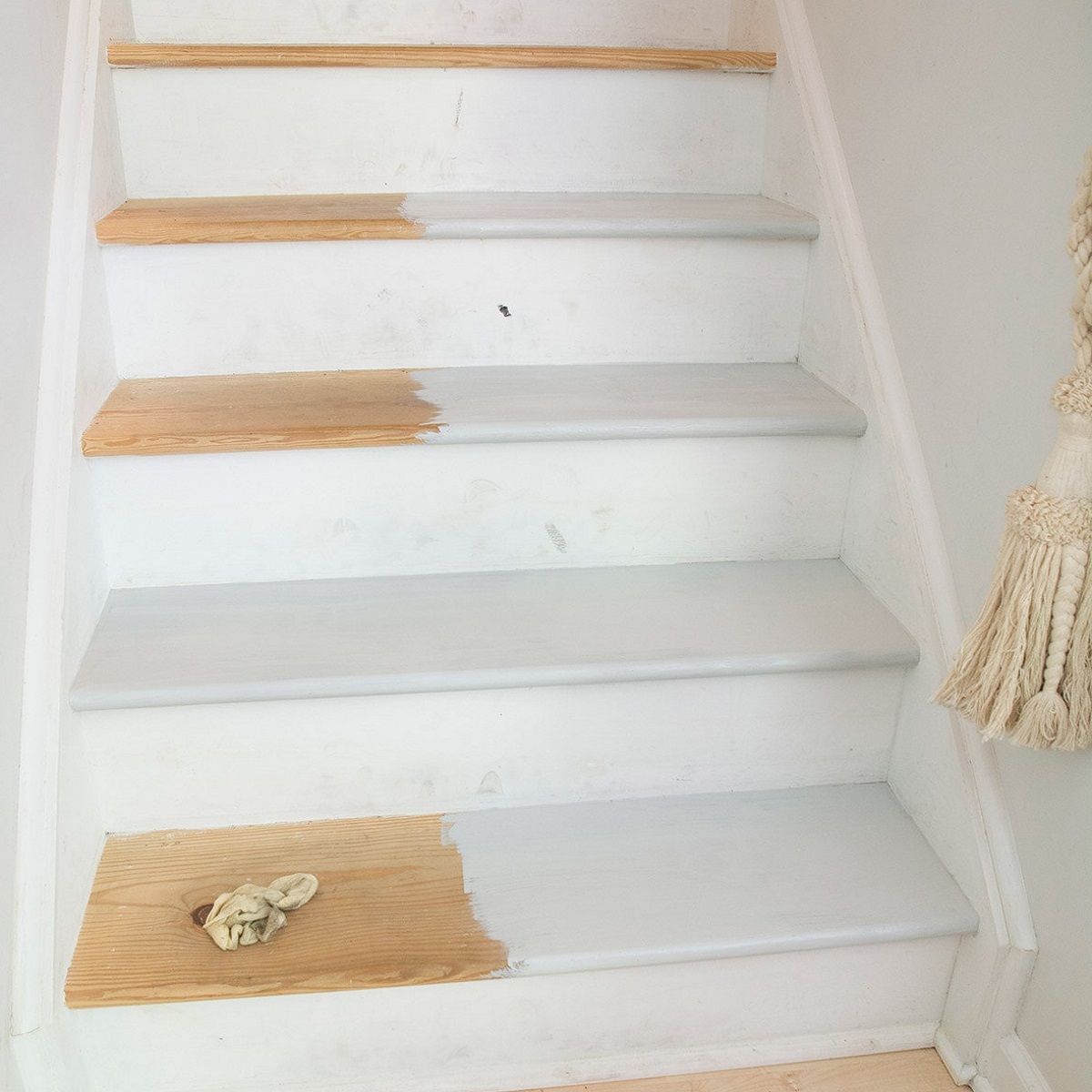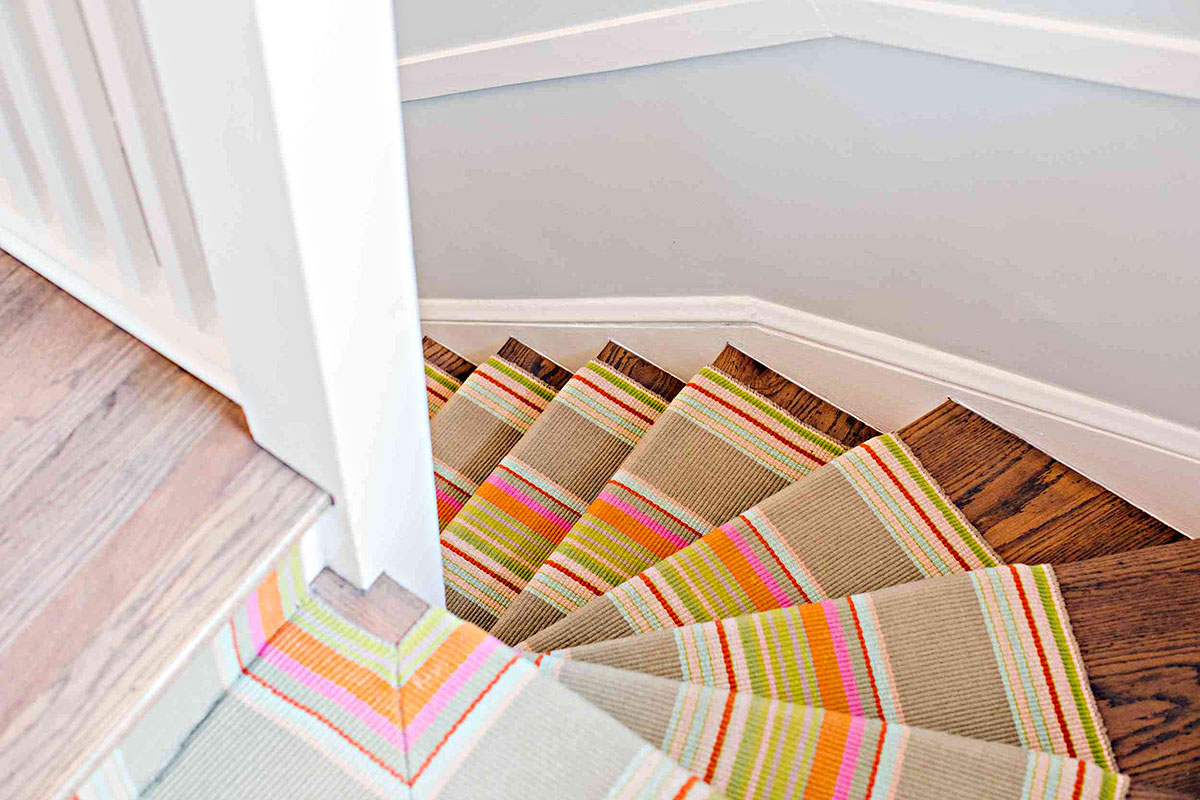

Articles
What Carpet Is Best For Stairs?
Modified: October 20, 2024
Discover the best carpet options for stairs in this informative article. Find out which materials are durable and safe for high-traffic areas.
(Many of the links in this article redirect to a specific reviewed product. Your purchase of these products through affiliate links helps to generate commission for Storables.com, at no extra cost. Learn more)
Introduction
When it comes to choosing carpet for stairs, it is essential to strike the right balance between style and functionality. Staircases are high-traffic areas that require durable and slip-resistant flooring solutions. The right choice of carpet not only enhances the overall aesthetics of your home but also adds an extra layer of comfort and safety to your stairs.
However, with various options available in the market, selecting the best carpet for stairs can be a daunting task. Factors such as material, style, maintenance, and durability should all be taken into account to ensure you make an informed decision.
In this article, we will discuss the important factors to consider when choosing carpet for stairs, the different types of carpet suitable for stairs, and other essential considerations to help you make the best choice for your home.
Key Takeaways:
- Choose a durable, slip-resistant carpet for stairs that complements your home’s decor. Consider factors like material, style, and maintenance to make an informed decision.
- Opt for a dense, low-pile carpet with high-quality padding for safety and comfort. Regular maintenance and protective measures will ensure longevity and aesthetics.
Read more: What Carpet Is Best For Stairs
Factors to Consider When Choosing Carpet for Stairs
Choosing the right carpet for stairs involves considering several factors to ensure longevity, safety, and style. Here are the key factors to keep in mind:
- Durability: Stairs are high-traffic areas that endure heavy foot traffic, so durability is crucial. Look for carpet options with high-quality fibers and construction that can withstand wear and tear.
- Slip Resistance: Safety is paramount when it comes to stairs. Opt for carpets with a good grip and non-slip backing to reduce the risk of accidents and provide a secure footing.
- Cleaning and Maintenance: Stairs are prone to dirt, stains, and spills. Consider carpets that are easy to clean and maintain, such as stain-resistant options or those with low pile height, which can be vacuumed easily.
- Style and Aesthetics: While functionality is important, don’t overlook the visual appeal of the carpet. Choose a style, color, and pattern that complements your home’s decor and personal taste.
- Budget: Set a budget for your carpet purchase. Consider the cost per square foot, installation charges, and any additional expenses for carpet padding or professional cleaning.
- Noise Level: Staircases can be noisy, especially in busy households. Some carpets have noise-reducing properties, which can help minimize sound transmission and create a quieter environment.
- Pets and Allergies: If you have pets or suffer from allergies, consider carpets that are resistant to pet stains and odors, or those made with hypoallergenic fibers to minimize allergens.
Considering these factors will assist you in making an informed decision and selecting the best carpet that meets your specific needs and preferences for your stairs.
Types of Carpet Suitable for Stairs
When it comes to choosing carpet for stairs, certain types of carpets are more suitable than others. Here are some common options:
- Nylon Carpet: Nylon is one of the most popular carpet materials due to its durability and ability to resist stains and wear. It is an excellent choice for high-traffic areas like stairs. Nylon carpets are available in a variety of styles, colors, and patterns.
- Polyester Carpet: Polyester carpets are known for their luxurious feel and vibrant colors. They are soft, stain-resistant, and often less expensive than nylon. However, polyester may not be as durable as nylon, making it more suitable for homes with lighter foot traffic.
- Wool Carpet: Wool is a natural fiber known for its exceptional durability and luxurious feel. Wool carpets are resistant to stains, moisture, and crushing. They also offer excellent insulation and sound absorption. While wool carpets may be pricier, they are a long-lasting and sustainable option for stairs.
- Blended Fiber Carpet: Blended carpets are made from a combination of fibers, typically nylon and polyester. This blend offers the benefits of both fibers, such as durability, stain resistance, and a wide range of styles and colors.
Each type of carpet has its own advantages and considerations. Assess your needs, budget, and lifestyle to determine which carpet option will be the best fit for your stairs.
Nylon Carpet
Nylon carpet is a widely popular and highly durable option for stairs. It is known for its exceptional strength, resilience, and ability to retain its original appearance even in high-traffic areas. Here are some key features and benefits of nylon carpet for stairs:
- Durability: Nylon is engineered to withstand heavy foot traffic without showing signs of wear and tear. It is especially suitable for homes with children and pets, where the stairs often experience frequent use.
- Stain Resistance: Nylon carpets are highly resistant to stains, making them an excellent choice for stairs that are prone to spills and accidents. Many nylon carpets have built-in stain resistant technology, further enhancing their ability to repel stains.
- Color and Style Options: Nylon carpets offer a wide range of colors, patterns, and textures, allowing you to choose the one that matches your desired aesthetic for your stairs. Whether you prefer a neutral palette or a bold statement, there is a nylon carpet for every style.
- Ease of Maintenance: Nylon carpets are relatively easy to clean and maintain. Regular vacuuming and occasional professional cleaning will help keep your nylon carpet looking fresh and vibrant for years to come.
- Affordability: While nylon carpets may be slightly more expensive than other carpet options, they offer exceptional value for the price. Their durability and longevity make them a cost-effective choice in the long run.
- Resilience: Nylon carpet fibers have a natural ability to bounce back and maintain their original shape even after being subjected to heavy foot traffic and furniture pressure. This resilience helps the carpet retain its appearance and prevents matting and crushing.
- Allergy-Friendly: Nylon carpets are less likely to harbor allergens, such as dust mites and pet dander, making them a suitable choice for individuals with allergies or asthma.
Overall, nylon carpet is a reliable and versatile option for stairs. Its combination of durability, stain resistance, and style choices make it a popular choice among homeowners looking for a long-lasting and practical carpet solution for their staircase.
Polyester Carpet
Polyester carpet is a popular choice for stairs due to its softness, vibrant colors, and affordability. It offers several advantages that make it suitable for both residential and commercial applications. Here are some key features and benefits of polyester carpet for stairs:
- Soft and Comfortable: Polyester carpet is known for its soft and plush feel underfoot. It creates a cozy and inviting atmosphere, making it a great choice for stairs where comfort is a top priority.
- Stain Resistance: Polyester carpets are naturally resistant to stains, thanks to the hydrophobic properties of the fibers. This makes them ideal for stairs that are prone to spills and accidents. However, it’s important to note that polyester may not be as effective at repelling oil-based stains as nylon.
- Color Retention: Polyester fibers have excellent color retention properties, which means the carpet will maintain its vibrant and rich colors over time. This makes it a great choice for homeowners who want their stair carpet to make a bold statement.
- Affordability: Polyester carpet is generally more affordable than other carpet materials, making it a budget-friendly option for those looking to spruce up their stairs without breaking the bank.
- Wide Range of Styles: Polyester carpets come in an extensive array of styles, patterns, and colors. Whether you prefer a neutral tone or a vibrant pattern, there is a polyester carpet option to suit every taste and décor.
- Fade Resistance: Polyester carpet is known for its resistance to fading due to sun exposure. This makes it a suitable choice for stairs with large windows or areas that receive a lot of natural light.
- Eco-Friendly Options: Polyester carpets can be made from recycled materials, making them an environmentally friendly choice. Look for carpets labeled as “eco-friendly” or “recycled content” if sustainability is important to you.
While polyester carpet offers many benefits, it’s important to note that it may not be as durable as nylon. It is best suited for areas with moderate foot traffic, making it a suitable choice for residential stairs or rooms with lighter use.
Considering the softness, affordability, and broad style options of polyester carpet, it is an excellent choice for those seeking a comfortable and budget-friendly solution for their staircases.
Read more: What Type Of Carpet Is Best For Stairs
Wool Carpet
Wool carpet is a luxurious and natural choice for stairs, offering a combination of elegance, durability, and sustainability. Here are some key features and benefits of wool carpet for stairs:
- Durability: Wool is one of the most durable carpet materials available. It is known for its natural resilience and ability to withstand heavy foot traffic without showing signs of wear and tear. Wool carpets can last for decades with proper care and maintenance.
- Luxurious Feel: Wool carpet is incredibly soft and luxurious underfoot, providing a plush and comfortable surface for stairs. Its natural fibers create a cozy ambiance and add a touch of elegance to any space.
- Stain Resistance: Wool fibers have built-in resistance to stains and spills due to their natural water repellency. This makes them easier to clean and maintain, as spills can often be blotted away before they have a chance to penetrate the fibers.
- Insulation and Sound Absorption: Wool is a natural insulator, meaning it helps regulate the temperature by trapping heat during the colder months and providing a cool surface during warmer months. Additionally, its dense fibers act as sound barriers, reducing noise and creating a quieter environment on the stairs.
- Environmental Sustainability: Wool is a renewable and biodegradable material, making it an eco-friendly choice for individuals concerned about the environmental impact. Wool is a natural byproduct of sheep farming and can be sourced ethically and sustainably.
- Hypoallergenic: Wool is naturally resistant to allergens, such as dust mites and mold, making it an ideal choice for individuals with allergies or asthma. It helps improve indoor air quality and creates a healthier living environment.
- Flame Resistance: Wool is inherently flame resistant and has a high ignition threshold. It is a safer choice for stairs as it can resist burning and smoldering, providing extra peace of mind.
While wool carpet offers numerous benefits, it is important to note that it comes with a higher price tag compared to other carpet materials. However, the longevity, luxurious feel, and eco-friendliness of wool make it a worthwhile investment for many homeowners.
If you’re looking to add a touch of elegance and luxury to your stairway while prioritizing durability and sustainability, wool carpet is an excellent choice.
Consider a low-pile carpet for stairs, as it is durable and less likely to show wear and tear. Look for a carpet with a high density and good grip to prevent slipping.
Blended Fiber Carpet
Blended fiber carpet is a versatile and practical option for stairs, offering the benefits of multiple fibers in one carpet. Typically made from a combination of nylon, polyester, and other synthetic materials, blended fiber carpets provide a balanced mix of durability, affordability, and style. Here are some key features and benefits of blended fiber carpet for stairs:
- Durability: Blended fiber carpets benefit from the durability of nylon, making them suitable for high-traffic areas like stairs. The addition of other fibers enhances the overall strength and resilience, ensuring the carpet can withstand wear and tear.
- Stain Resistance: Blended fiber carpets often incorporate stain-resistant properties, thanks to the inclusion of nylon or other resilient fibers. This feature helps keep the carpet looking fresh and makes cleaning up spills easier.
- Affordability: Blended fiber carpets tend to be more affordable than carpets made entirely from one specific fiber. The combination of different fibers allows for cost savings without compromising on performance or aesthetics.
- Style Options: Blended fiber carpets offer a wide range of style options, including various colors, patterns, and textures. Whether you prefer a traditional look or a more modern design, you can find a blended fiber carpet to suit your personal style and complement your home decor.
- Ease of Maintenance: Blended fiber carpets are generally easy to clean and maintain. The inclusion of stain-resistant fibers and the ability to withstand frequent vacuuming make them a practical choice for stairs.
- Comfort: Blended fiber carpets provide a comfortable and soft surface for stairs. The combination of fibers can create a plush and cozy feel underfoot, enhancing the overall comfort of your stairway.
- Sound Absorption: The mix of fibers in blended fiber carpets can contribute to sound absorption, reducing noise on the stairs and creating a quieter environment in your home.
Blended fiber carpets offer a balanced combination of durability, affordability, and style, making them a popular choice for many homeowners. When considering a blended fiber carpet for your stairs, take into account your specific needs, budget, and desired aesthetics to find the perfect option for your home.
Carpet Density and Pile Height for Stairs
When selecting carpet for stairs, it’s important to consider the density and pile height of the carpet. These factors can greatly impact the durability, comfort, and safety of your stairs. Here’s what you need to know:
Carpet Density: Density refers to how closely the fibers are packed together in the carpet. A high-density carpet has more fibers per square inch, making it more resistant to wear and tear. For stairs, it’s crucial to choose a carpet with high density to withstand the constant foot traffic. Dense carpets also tend to be more comfortable to walk on and maintain their appearance for a longer time.
Pile Height: Pile height refers to the length of the carpet fibers from the backing to the top. In general, shorter pile heights are recommended for stairs to minimize the risk of tripping and to ensure a secure footing. Long, shaggy carpets may pose a safety hazard on stairs, especially for children and elderly individuals. Opting for a low pile height or even a looped carpet can provide a safer and more stable surface for stairs.
Additionally, it’s important to note that carpet density and pile height should be considered together. A high-density carpet with a low pile height is typically the best choice for stairs, as it offers both durability and safety.
When shopping for carpet, be sure to ask about the carpet’s density rating and pile height specifications. Manufacturers usually provide this information, so you can make an informed decision based on your specific needs. Remember to prioritize safety and comfort when choosing the density and pile height of your carpet for stairs.
Patterned vs. Solid Color Carpet for Stairs
Choosing between patterned and solid color carpet for stairs is a matter of personal preference and the overall aesthetic you want to create in your home. Both options have their advantages and considerations. Here’s a breakdown of patterned and solid color carpet for stairs:
Patterned Carpet:
- Visual Interest: Patterned carpet can add visual interest and a focal point to your stairs. It can enhance the overall decor and create a unique and personalized look.
- Camouflage Stains and Wear: The patterns in the carpet can help conceal stains, spills, and wear and tear, making it an excellent choice for high-traffic areas like stairs.
- Hide Imperfections: If your stairs have imperfections or uneven surfaces, a patterned carpet can help disguise them, providing a more uniform and appealing appearance.
- Bolder Style Statement: Patterned carpets can make a bold style statement, allowing you to showcase your personality and creativity. They can be a great focal point and conversation starter in your home.
- Coordination Challenges: When using patterned carpet, you need to coordinate it with other elements in the space. This can include considering the color scheme, furniture, and any existing patterns in the room to create a cohesive look.
- Appropriate Scale: It’s essential to select a pattern scale that complements the size of your stairs. Small patterns may be overwhelmed by a large staircase, while large patterns might overpower a small stairway.
Solid Color Carpet:
- Timeless and Versatile: Solid color carpet is timeless and versatile, making it easy to match with various decor styles and furniture. It provides a clean and classic look for your stairs.
- Expands Visual Space: Solid color carpet can create an illusion of a larger space by visually expanding the stairs. It can give a more open and airy feel to your staircase.
- Flexibility in Room Design: Solid color carpet allows you more flexibility in changing the overall design of your room. It serves as a neutral base that can easily accommodate different furniture styles and color schemes.
- Emphasize Other Design Elements: With solid color carpet, you can put the focus on other elements in the space, such as artwork, wall decor, or architectural features. It acts as a backdrop, allowing these elements to shine.
- Highlight Texture and Material: Solid color carpet can draw attention to the texture and material of the carpet itself. This can be particularly appealing if you have chosen a luxurious or unique material for your carpet.
Ultimately, the choice between patterned and solid color carpet for stairs relies on your personal style preferences and the overall design goals you have for your home. Consider the visual impact, maintenance needs, and coordination with other design elements to determine the best option for your staircase.
Read more: What Size Staples For Carpet On Stairs
Carpet Padding for Stairs
When choosing carpet for stairs, it is important to also consider the use of carpet padding. Carpet padding, also known as cushion or underlay, provides several benefits for your stairs. Here are some key considerations regarding carpet padding for stairs:
- Comfort: Carpet padding adds an extra layer of cushioning, enhancing the comfort underfoot. This is especially beneficial for stairs that are frequently used, providing a softer feel and reducing the impact on your feet.
- Noise Reduction: Carpet padding helps reduce noise and minimize the sound of footsteps on the stairs. This can be particularly advantageous in multi-level homes or apartment buildings where noise reduction is a priority.
- Protection against Wear: A good quality carpet padding helps protect the carpet from premature wear by absorbing the impact of foot traffic. It extends the life of your carpet, ensuring it maintains its appearance and durability for a longer period.
- Improved Insulation: Carpet padding acts as a thermal insulator, providing additional warmth and insulation to your stairs. This can be beneficial, particularly in colder climates, as it helps retain heat and prevents drafts on the stairs.
- Enhanced Durability: By reducing the impact on the carpet, padding helps prevent the backing and fibers from becoming worn out or damaged. It adds an extra layer of reinforcement, increasing the overall durability of the carpet on your stairs.
- Improved Safety: Carpet padding can enhance the safety of your stairs by providing a more secure and stable surface underfoot. It helps reduce the risk of slips and falls, providing a more stable footing on your stairs.
- Selection and Thickness: Ensure to choose the right type and thickness of carpet padding for your stairs. Opt for a dense and firm padding that is specifically designed for use on stairs. It should be thick enough to provide comfort and protection but not too thick to create a tripping hazard.
When purchasing carpet padding for stairs, it is important to invest in a high-quality product that is suitable for your specific carpet and needs. Consult with your carpet retailer or a professional to ensure you choose the right padding that will enhance the comfort, durability, and safety of your stairs.
Maintenance and Durability of Stair Carpet
Maintaining and ensuring the durability of your stair carpet is essential to keep it looking fresh, clean, and in good condition for years to come. Here are some maintenance tips and factors to consider to maximize the lifespan of your stair carpet:
- Regular Vacuuming: Vacuum your stair carpet on a regular basis to remove dirt, dust, and debris that can accumulate over time. Pay extra attention to the edges and corners of each step to ensure thorough cleaning.
- Spot Cleaning: When spills and stains occur on your stair carpet, it is important to address them promptly. Blot the stain gently using a clean cloth or paper towel. Avoid rubbing or scrubbing, as this can push the stain deeper into the fibers. Use a carpet cleaner suitable for your carpet type if necessary, following the manufacturer’s instructions.
- Professional Cleaning: Engage professional carpet cleaners to deep clean your stair carpet periodically. This will help remove deep-seated dirt, allergens, and stains that normal vacuuming cannot eliminate. Professional cleaning can also revive the appearance of your carpet and extend its lifespan.
- Protect High-Traffic Areas: Consider using carpet runners or rugs in high-traffic areas of your stairs to help protect the carpet from excessive wear and tear. These can be easily replaced or cleaned, providing an extra layer of protection to your stair carpet.
- Use Carpet Protectors: Place plastic or fabric carpet protectors underneath furniture or heavy items on your stairs. This helps distribute the weight and prevents the legs or edges from damaging the carpet fibers.
- Manage Pet Hair: If you have pets, regular grooming can help minimize the shedding of fur and reduce the amount of pet hair that accumulates on your stair carpet. Use lint rollers or pet-specific vacuum attachments to remove pet hair from the carpet fibers.
- Protect from Sunlight: Prolonged exposure to direct sunlight can cause carpet fibers to fade or discolor over time. Consider using blinds, curtains, or window films to protect your stair carpet from harmful UV rays.
- Consider Carpet Warranty: When purchasing your stair carpet, check if it comes with a warranty. It’s important to understand the terms and conditions, including any recommended maintenance procedures, to ensure you meet the requirements to maintain the warranty coverage.
By following these maintenance tips and taking protective measures, you can help extend the life and maintain the durability of your stair carpet. Regular care and proper maintenance will keep your carpet looking fresh, clean, and in excellent condition for years to come.
Conclusion
Choosing the right carpet for stairs is a decision that requires careful consideration of various factors. From durability and slip resistance to style and maintenance, each aspect plays a vital role in creating a safe, comfortable, and visually appealing staircase in your home.
When selecting carpet for stairs, it’s important to assess the specific needs of your household. Consider factors such as the amount of foot traffic, the presence of children or pets, and any potential allergy concerns. Take into account the durability and stain resistance of different carpet materials, such as nylon, polyester, wool, and blended fibers, to meet your specific requirements.
Additionally, pay attention to carpet density and pile height. Opt for a dense carpet with a low pile height that can withstand the wear and tear of stair use while providing a safe surface for walking. Consider whether a patterned or solid color carpet better suits your style and complements your overall home decor.
Don’t overlook the importance of carpet padding for stairs. It adds an extra layer of comfort, noise reduction, and longevity to your carpet, ensuring a safer and more durable staircase.
Maintaining your stair carpet is also crucial for its longevity and aesthetics. Regular vacuuming, prompt spot cleaning, and periodic professional cleaning will keep your carpet looking fresh and free from stains. Considering protective measures, such as carpet runners or rugs in high-traffic areas, will help preserve the quality of your stair carpet.
Ultimately, the right carpet for stairs strikes a balance between functionality, durability, style, and maintenance. By carefully considering these factors and making an informed decision, you can create a stunning staircase that enhances the overall ambiance of your home while providing a safe and comfortable passage.
Consulting with experts or professional carpet retailers can provide valuable insights and guidance to help you select the best carpet for your unique stairway needs. Invest in high-quality materials, practice regular maintenance, and enjoy the durability and beauty of your stair carpet for many years to come.
Frequently Asked Questions about What Carpet Is Best For Stairs?
Was this page helpful?
At Storables.com, we guarantee accurate and reliable information. Our content, validated by Expert Board Contributors, is crafted following stringent Editorial Policies. We're committed to providing you with well-researched, expert-backed insights for all your informational needs.
